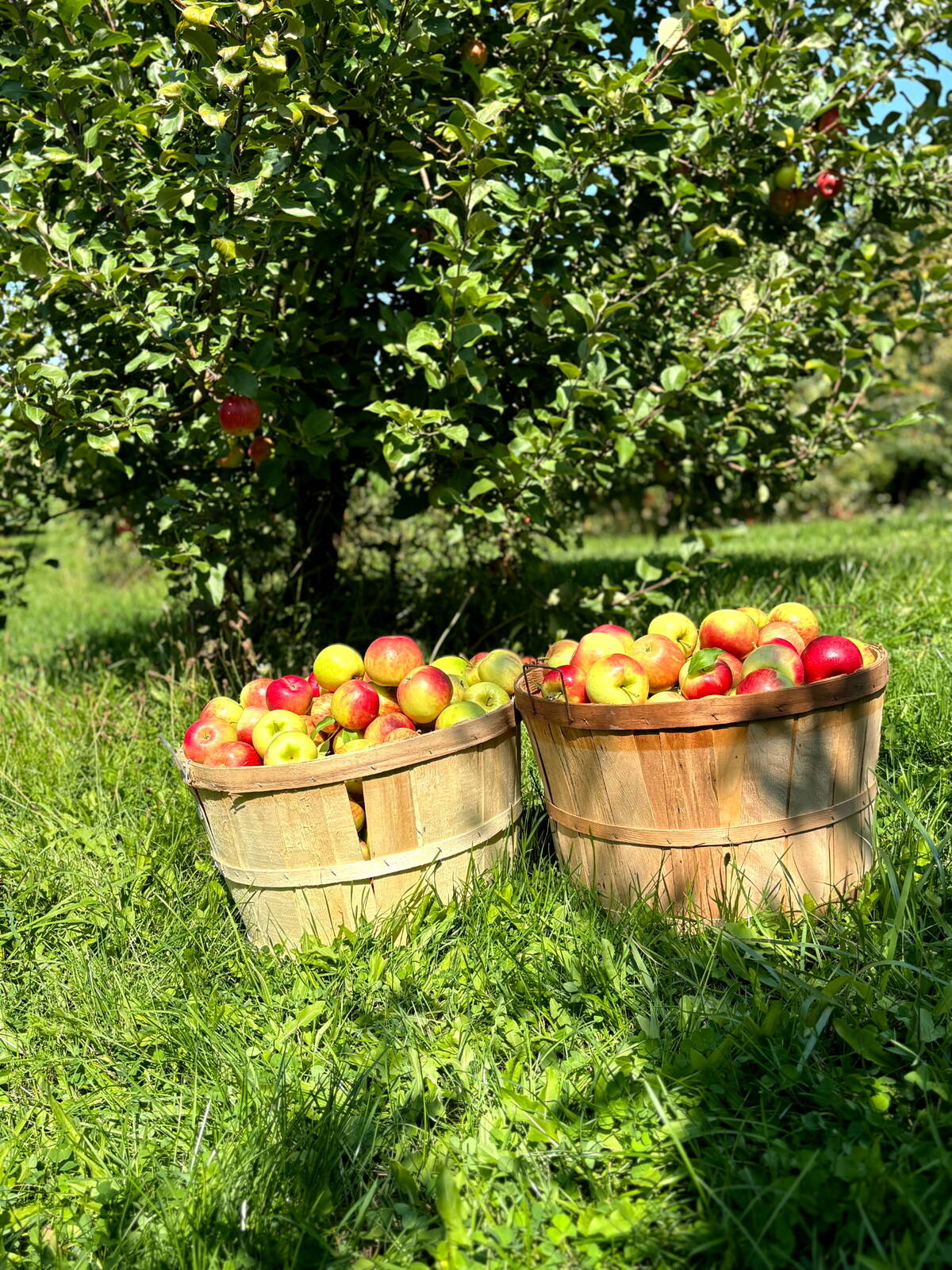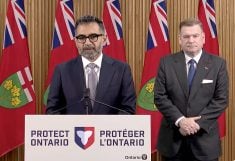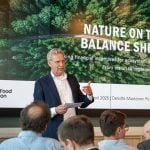Russia is using food as a weapon of war, one designed to compel Ukraine and its allies to cave to Russian demands for the open export of its own grain and fertilizer, and subsequently, the import of great quantities of cash for the Russian war chest.
While there is a UN-brokered deal for the continued flow of grain out of the Black Sea, there is no guarantee it will last. Indeed, it only exists because the Russian government has, so far, seen it as comparatively beneficial.
This could change at any time, and for any number of reasons, spurring yet another global trade crisis and all the political unrest such events create.
Read Also

Farmers taking to social media to spread the word about the cost of farm thefts
A rash of farm thefts in Ontario have left farmers looking for new ways to help customers understand the cost of stealing goods.
As Russia continues threatening to end the current grain deal — threats in of themselves being useful weapons for the regime — we ought to consider whether we’re ready to handle the market and political shocks if it does end.
Russia’s full-scale invasion of Ukraine and its blockade of Ukrainian port facilities sent the cost of food commodities soaring in early 2022. This posed enormous problems to many countries in Africa, the Levant, and elsewhere, areas particularly reliant on Ukrainian wheat, maize, barley, and sunflower oil.
United Nations reports indicated the prices of staple foods rose by an average 30 per cent, and warned 44 million people in 38 countries were facing emergency levels of hunger. Major economic hardship and civil unrest loomed.
In response, the summer months saw the United Nations and Turkey broker an export deal between Ukraine and Russia. As the BBC reports, that deal has allowed for the shipment of some 30 million tonnes of grain and other foodstuffs out of the Black Sea through a safe corridor — albeit, overseen and inspected by agents of the Russian Federation, which brings complications in itself.
Still, the grain flowed. It seemed like a win-win, at least in some respects.
Ukraine could continue exporting at least a portion of its commodities, and acquire much-needed capital to fight the invader. Putin could continue pantomiming in his beloved image of international security agent, while encouraging a favourable view of his government in many food-insecure states. Food insecure countries would see an alleviation, if only partially, of their food-related problems.
Of course, the Kremlin couldn’t give a toss. Putin and his regime only care about survival and perpetuation of their warped imperialistic vision for the world.
Like Monty Python’s Piranha brothers, recent months have seen Russia circling the grain deal like mafia strongmen.
“Nice grain deal you got there, colonel. Be a shame if something were to happen to it. Maybe if you lift all those tariffs on our stuff, we might be able to come to a deal …”
It is bullying on a global scale. It’s astounding, but predictable. As soon as the Russian government decides that ending the grain deal is better than continuing, the world will again see massive market disruptions, price increases, and more. Indeed, the problem could be drastically worse than before.
What happens, for example, if Russia goes out of its way to more aggressively attack port facilities and ships, or attempts to further snarl global trade infrastructure?
Long-term solutions needed
Are we in the democratic world — and particularly in food-producing superpowers like Canada and the United States — prepared for these contingencies? Are we investing enough in infrastructure to move grain?
Are we taking organizational and personal cybersecurity seriously? Rather than exclusively focusing on saving the Russia-Ukraine grain deal, should we not be asking what can be done for global food security in the long term?
The guns will eventually stop, but inevitably, they will sound again.
On top of short-term policy thinking, I detect a fair amount of isolationist thinking in Canada’s agriculture sector. Thinking a nation can exist safely at home while the rest of the house burns down, however, is complete fantasy.
Whether through continued political violence, the spread of extremist ideologies, environmental degradation or just emigration, the unrest experienced by human beings in other parts of the world will invariably affect us directly — and that’s on top of anything we might experience as a result of trade disruptions initiated by malign geopolitical actors.
Putin’s government is actively trying to destabilize the world in pursuit of overtly imperialistic, nationalistic goals. By continuing to be complacent after agreements are established, or by disregarding what is happening in Ukraine as irrelevant to Canada, we are making it easier for Russia to achieve these goals.
We need workable and resilient food systems; systems that can absorb shocks, keep commodities flowing and help lift other countries from dependence on Russian autocrats.
Right now, I’m convinced we as a country, and as individual Canadians, could be doing a great deal more. At the very least, that means better understanding we are not separate on this planet, and not mistaking short-term solutions for long term ones.
That mistake, after all, is what Putin’s Kremlin wants.













